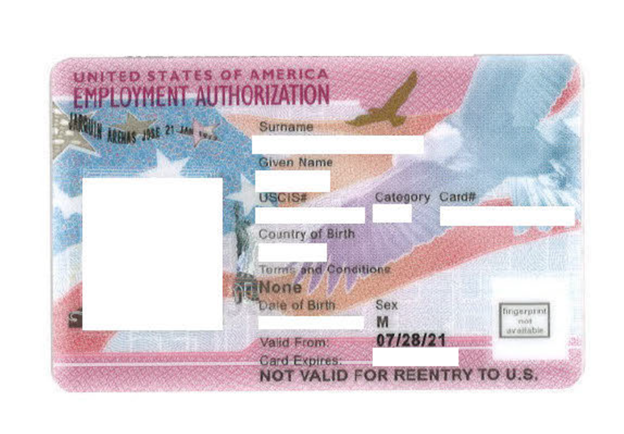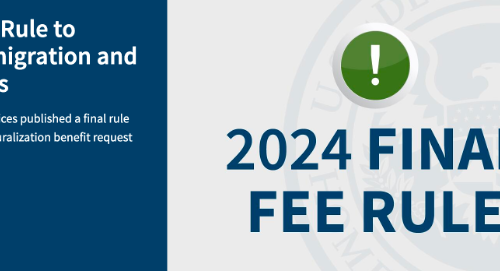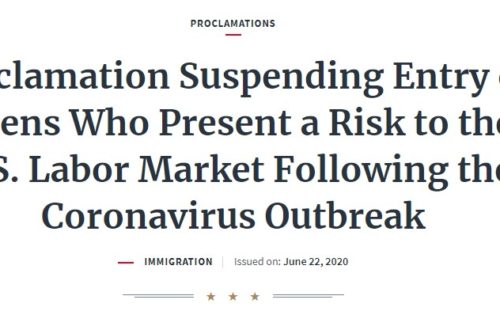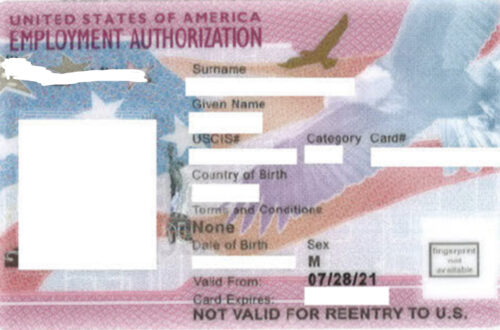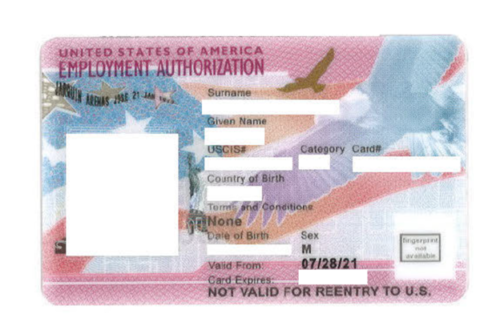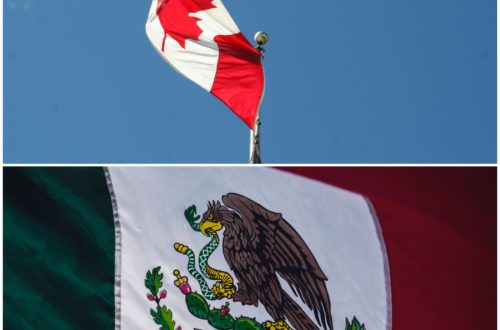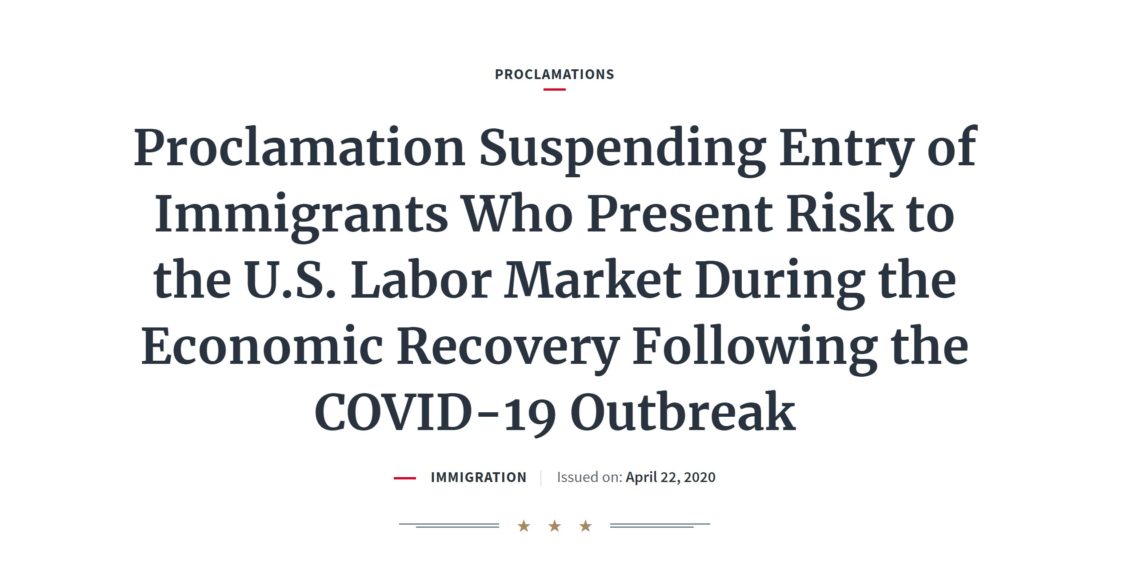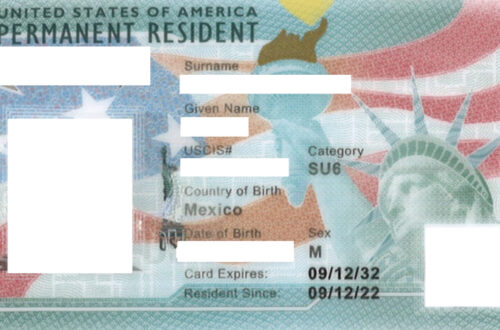-
Employment-Based Immigration, Family-Based Immigration, Green Card, Lawful Permanent Residency, Policy Change
COVID-19 Vaccines Will Be Required for Green Card Applicants Starting October 1, 2021
Starting October 1, 2021, U.S. Citizenship and Immigration Services (USCIS) and the U.S. Department of State will require COVID-19 vaccinations for all applicants applying for refugee or lawful permanent residence, with some exceptions. All applicants who receive their medical examination ON OR AFTER October 1, 2021, must complete the COVID-19 vaccine series and provide documentation of vaccination. This change will impact anyone who completes the medical exam ON OR AFTER October 1, 2021. If the exam is completed BEFORE October 1, 2021, and it remains valid, the COVID-19 vaccine will not be required. Waivers for the vaccine may be available in these scenarios: -Not age-appropriate -Contraindiction – a reason for…
-
Quicker Work Permits for U Nonimmigrant (U Visa) Petitioners and Qualifying Family Members
On June 14, 2021, USCIS issued a policy alert that will give principal petitioners (the main applicant) and qualifying family members with pending and valid U visa petitions work permits. To find out what a U visa is, you can go to my blog post here. The terms U nonimmigrant status and U visa are often used interchangeably but generally refer to the same immigration benefit. For purposes of this post, I will use the term U visa since that is the term that most people are familiar with. For anyone who has applied for a U visa, there is a huge backlog. I remember when I first started working…
-
The First 100 Days of the Biden Administration – Immigration Edition
In President Biden’s first 100 days in office, he will be proposing many immigration-related policy changes and executive orders, as well as an immigration bill. Click here to read more about those plans. Here are some of the immigration-related issues that the Biden administration has said it will address: Reverse the Trump Administration’s policies that separate parents from their children at our border, including ending the prosecution of parents for minor immigration violations as an intimidation tactic, and prioritize the reunification of any children still separated from their families. End Trump’s asylum policies. Surge humanitarian resources to the border and foster public-private initiatives, and increase U.S. government resources to support migrants awaiting…
-
Public Charge Rule Updates and Other U.S. Immigration Changes Due to COVID-19
No one can deny that this year has been full of uncertainty and changes because of the pandemic. I cannot think of one sector or industry that has not been affected in one way or another, including our U.S. immigration system. Many changes have happened and as attorneys, we have had to navigate our way through these unprecedented times staying up to date on current events and how they will be affecting our clients’ cases. Within our immigration system, there are many different areas. For example, we have the immigration courts, the U.S. Department of State, USCIS (U.S. Citizenship and Immigration Services), and the National Visa Center (NVC). Because of…
-
USCIS Raising Filing Fees Effective October 2, 2020
*Update: On September 29, 2020, a federal judge blocked the filing fees from increasing at this time. USCIS is raising its fees by an average of 20%, but some fees will increase by much more than that. If you have an immigration case that can be filed before that date, you should do so. Below is a table of the new fees. You can also find the final rule here.
-
President Trump Issues Proclamation Suspending Entry of H-1B, H-2B, L, and J Visas
On June 22, 2020, President Trump issued a proclamation that suspends issuance of H-1B, H-2B, J and L visas until at least December 31, 2020. The suspension could be extended depending on the circumstances at that time. This proclamation also extends the proclamation from April 22, 2020, that bans certain immigrants from coming into the U.S. until the end of the year, which was originally set to expire sixty days later. I had written a blog post about that proclamation here. This current proclamation only affects people who are currently outside the U.S. who want to get one of those types of visas to come into the U.S. If a…
-
Getting Unemployment Benefits if You Are An Immigrant
During these uncertain times, many people are facing economic hardship due to layoffs or furloughs. A question I have been getting lately is if a person can apply for unemployment benefits if a person does not have any legal status; if a person is not a green card holder but holds a valid work permit; if a person is a green card holder; or if a person is an H-1B holder. The general rule is that getting uemployment will not be considered a public benefit that would affect a person’s ability to get a green card. The Department of Homeland Security has explained in its final rule on inadmissibility on public…
-
Most USCIS Field Offices to Resume Services on June 4, 2020
As the USCIS field offices begin to resume services again, they will be reducing the number of appointments and interviews to make sure they are following the proper social distancing guidelines, to allow time for cleaning, and to reduce the number of people in the waiting area. Appointment notices will also have the information that visitors to USCIS must follow. USCIS has stated that if you are feeling sick, you should not go to the appointment. There will be no penalty for rescheduling if the reason is because you are sick. Asylum Offices USCIS asylum offices will automatically reschedule asylum interviews that were canceled during the temporary closures, and new…
-
President Trump Signs Executive Order Banning Entry of Certain Individuals Into the U.S. Amid COVID-19 Outbreak
*UPDATE* On December 31, 2020, a proclamation was issued that extends this ban until March 31, 2021. On April 22, 2020, The president’s proclamation was signed that will temporarily not allow certain people to come to the U.S. for at least 60 days, but it can be extended if needed. This applies to people who are NOT in the U.S., do not have an immigrant visa that was effective on 4/22/2020, and do not have any official travel documents other than a visa that was effective 4/22/2020. An example of this would be a person who is a green card holder and has petitioned for a spouse or child, that…
-
Changes to the U.S. Immigration System During COVID-19 Pandemic
The term “social distance” is a term we are seeing everywhere now. Most of us have never experienced what we are experiencing now in the world and understandably many are scared, anxious, and nervous. I cannot think of one industry that has not been affected by this. Below is a summary of how our U.S. immigration agencies, systems, and procedures have been impacted. This is a rapidly changing situation so I will continue to monitor it. As of March 18, 2020, U.S. Citizenship and Immigration Services (USCIS) has put a hold on routine in-person services at least until May 3, 2020, to help slow the spread. These in-person services include…




